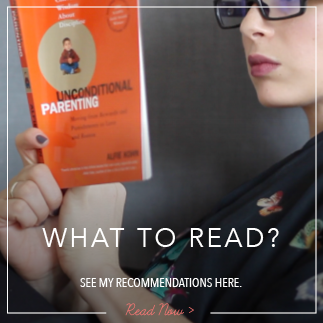How to Raise Grateful Children (10 Tips for Teaching Gratitude)
“My child is a spoiled brat! She is so ungrateful! They whine allllll day long. He’s just so …NEGATIVE. How do I MAKE my children more grateful?”
Sound familiar?
Here are 10 tips to “turn the ship around” so-to-speak and spark an attitude of gratitude in your home.
1. Model Gratitude
No surprise there, right? We all know we have to start by expressing gratitude ourselves. Telling our children that THEY should be grateful, that THEY should give thanks and look on the bright side of things, while we’re complaining…well that’s like asking our children to eat healthy food while we serve up Oreo’s. It’s not going to happen.
We need DEEP modeling, which means not only doing it, but also breaking it down and pointing out that you are actively choosing an outlook of gratitude.
You need to ACTIVELY pursue gratitude for the things in your life, good or bad: Any challenge is an opportunity to focus on the positive, focus what you DO have, your resiliency & your capability. Be relentlessly optimistic.
2. Model Gratitude TOWARDS Children
You need to show and express that you are grateful for them, grateful they exist, grateful for their contributions to the family, their personality, their humor, etc. Giving thanks is something that we should constantly being showing towards ourselves, our partners, our children, and anyone we appreciate in our life.
3. Encourage Contribution from Children
Yes, this takes patience. It’s easier to do it ourselves: the dishes, the laundry, the clearing of the table, and especially the cleaning of the toy room.
Do your kids take 5 hours to pick up 3 toys like mine do?
By the way, I don’t believe in paying for chores. You can read more about that here, but chores allow our children to be meaningful contributors to the household. But being able to contribute to the family is a meaningful experience for our children. And this helps them to understand the cycle of Service and Gratitude.
4. Don’t be Over Protective; Expose Children to Real World Hardships
Its all about perception, right? We can’t expect our children to be grateful for food, health, or shelter when they don’t see a world without those. If we want to step into abundance we need to take a broader perspective and realize just how lucky we are. Allow children to be exposed to the hardships of life (in an age appropriate way).
We don’t need to scare them, or overwhelm them, or make them feel GUILTY (Not the Starving Kids in Africa speech!). It’s about mindfully exposing them to other people in the world who are far less fortunate than themselves.
5. Ritualize Gratitude
Gratitude happens through habit. Continual expressions of gratitude on a regular basis help to lay the foundation for optimistic tendencies in our children. Maybe it’s a morning song, an evening prayer, or part of any other daily habit, either way it needs to be a regular thing.
6. Don’t label Children as Ungrateful
Choose empathy instead. I know this one is difficult. Being ungrateful is a HUGE trigger for me; but calling them ungrateful doesn’t actually bring them back to a place of gratitude.
In fact, it has the opposite effect. It causes defensiveness and anger.
Instead we want to empathize and validate their concerns, understand their grievances. Then we can go into a discussion on what IS “enough” or what it means to be blessed.
7. Adopt a Charity as a Family
Collecting money for a charity together as a family to give to an organization, or buying food for a organization or something similar allows us to become part of the giving and allows us to see and feel the contribution.One of the ways that I love to do this is by supporting a charity called Plan International. Plan International allows you to sponsor a child, and allows you to meet that other child through correspondence. You get to read about their life, allowing you to contrast that life with what’s going on with your children, and feel grateful for what you have.
8. Volunteer as a Family
Any kind of volunteer work be it with your neighbors, your family, your friends, or an organizational institution is an incredible way to gain perspective over our lives and to be grateful for what we have.
Examples include: a weekly visit to an old age home, singing, or playing, or watching a movie with sick children or children with disabilities who might need help or entertainment, volunteering in a pet shelter, etc.
9. Become Problem Solvers
Rather than lingering on the pain, and the blame, and who’s fault it was, instead be proactive about saying “we can solve problems in this family”. Feeling equipped to handle problems feeds into gratitude, because it’s from a sense of abundance, a sense of capability, a sense of privilege that I am able to solve problems rather than linger on problems.
10. Become Relentlessly Optimistic
We want to view ourselves, our lives, and our children with optimism. Unwavering optimism that is permanent, pervasive, and personal. With a few bad issues or temporary circumstances sprinkled in.
Practice saying to your child (or your husband, or to LIFE, because you can do that, speak to LIFE. Out loud) “You are good. You are great. Everything about you is wonderful. And sometimes you have bad behaviors, we all do.
“BONUS:
I have created a Gratitude Conversation Starter Pack to encourage conversations around gratitude. Print them out and share with me on Instagram how you plan to use them (use #parentingjunkie).











relentlessly optimistic…love that!